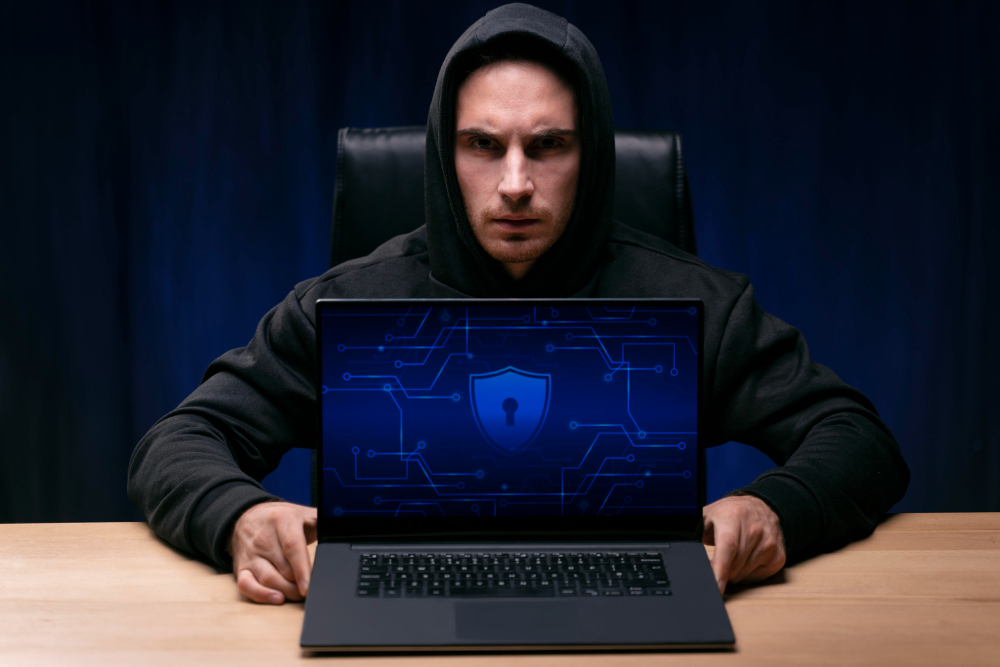Cybersecurity is a necessity in this fast-paced, digital world, and both organizations and individuals need to take heed. With tens of thousands of cyberthreats surfacing every single day, the need for freelance cybersecurity experts just multiplies times over. So can you be a freelancer in cybersecurity? The answer is yes. Freelancing in cybersecurity provides flexibility, financial opportunities, and professional growth, but this requires expertise, discipline, and adaptability.
Understanding Freelance Cybersecurity
Freelance cybersecurity provides specialized services to clients through project-based employment instead of employment full-time. The freelancers work on their own in helping the businesses protect and manage their vulnerabilities while keeping up with regulations in their respective industries.
A freelance cybersecurity professional might take tasks including penetration testing, data encryption, malware analysis, network security audit, and vulnerability assessment. This portability characteristic ensures the freelancers can cover diverse industries and projects.
Skills for Freelance Cyber Security Work
A freelance cybersecurity expert must, therefore, arm himself with a significant set of skills to fight the current malicious cyber attacks. Among the essentials are:
Technical Skills: In-depth knowledge of network security, firewalls, encryption techniques, and white-hat hacking.
Problem-Solving Skills: Capacity for analyzing and identifying potential risks to mitigate.
Knowledge of Regulations: Knowing compliance standards such as GDPR, HIPAA, or PCI DSS.
Continuous Learning: Staying current with emerging cybersecurity trends, tools, and threats.
Communication Skills: Communicating technical ideas with non-technical clients.
Certifications to Boost Your Freelance Career
Here are some well-known cyber security certifications:
Certified Ethical Hacker (CEH): The course equips a candidate to become an effective penetration tester and ethical hacker.
Certified Information Systems Security Professional (CISSP): Cybersecurity principles are all-encompassing in scope
CompTIA Security+: An entry-level security certification for fundamental skills.
CISM: Suitable for those responsible for security policies
Advantages of Freelance Cybersecurity
Freelance cybersecurity brings a myriad of benefits that define this occupation as a work choice:
Flexibility: Select clients, projects, and work hours.
Much Higher Earning Potential: Freelancers earn a lot more per project than full-time workers.
Experience in Different Fields: Work on projects across different industries and build your experience.
International Access: Reach a global market regardless of geography.
Independence: Be your boss and control your career trajectory.
Challenges of Freelancing in Cybersecurity
While freelancing offers freedom and financial rewards, it also comes with challenges:
Finding Clients: Establishing a client base takes time and effort, especially when starting.
Inconsistent Income: Income can fluctuate depending on the number of projects.
Self-Discipline: Managing deadlines and delivering high-quality work independently requires discipline.
Keeping Up with Technology: Cybersecurity evolves rapidly, demanding continuous education.
Legal Liability: The potential for legal liabilities in case of errors in your work compels a liability insurance.
Building a Thriving Freelance Cybersecurity Career
To develop a prosperous career, do the following:
Prepare a Professional Profile
Build yourself as a professional online on platforms such as LinkedIn, Upwork, or Fiverr. Make sure to showcase your skills, certifications, and previous projects.
Networking Strategically
Attend cybersecurity events, webinars, and meetups to get acquainted with industry professionals. Visibility will increase and it translates to more opportunities.
Specialize in a Niche
Focus on a niche that gives you an edge over the competition. For example, focus in cloud security, application security, or data protection.
Charge competitive rates
Research what market rates are for your services, and charge accordingly. Scale up your rates as you gain experience and recognition.
Deliver Exceptional Work
Quality is above all in cybersecurity. Always render thorough, accurate, and reliable services to cement a good reputation.
Conclusion
Freelancing in the domain of cybersecurity is not only possible but also very rewarding if an individual has the required skills and mindset for this work. As more and more businesses emphasize digital security, the need for freelance cybersecurity experts grows every day. Invest in certifications and networking, and invest in that commitment to excellence to work toward a successful and fulfilling career within this evolving field.
FAQs
1. What services can I offer as a freelance cybersecurity expert?
This category of freelancers can offer services such as penetration testing, vulnerability assessments, incident response, malware analysis, data encryption, and security audit.
2. Do I need certifications to start freelancing in cybersecurity?
Highly recommended certifications with CEH, CISSP, or CompTIA Security+ increase your credibility and attract you more clients, though sometimes not strictly necessary.
3. What is the pay that a freelance cybersecurity professional can earn?
The pay depends on experience, certifications, and scope of projects. Freelancers may earn anywhere from $50 to $300 per hour or more.
4. What’s some good platform or source to find freelance cybersecurity projects?
There are a few popular ones: Upwork, Toptal, Freelancer, and LinkedIn. Networking and personal referral play a huge role here also.
5. Is freelancing in cybersecurity suitable for beginners?
While freelancing for beginners can begin, foundational knowledge, certifications, and some practical experience are necessary to secure projects and gain trust.




